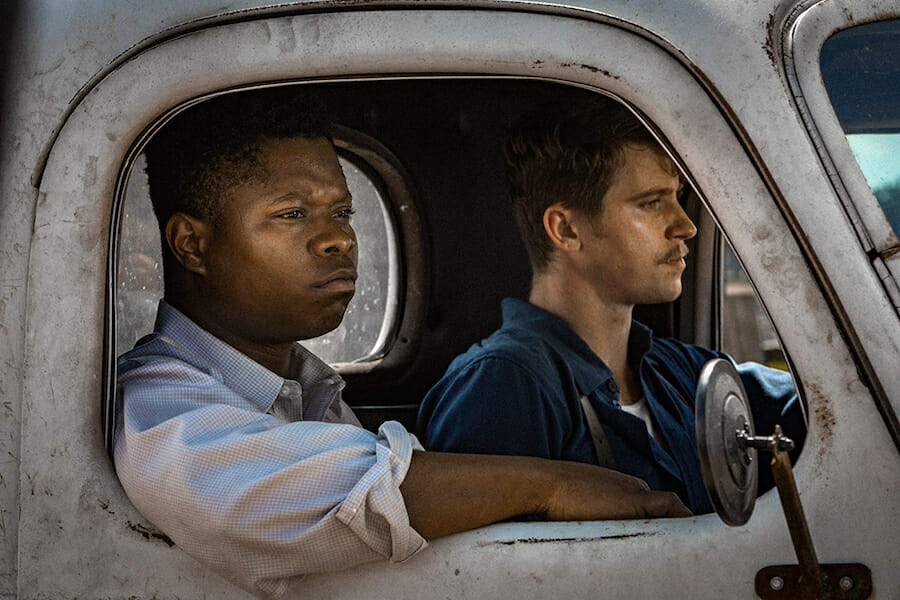
‘Mudbound’ Review
The Jim Crow South and WWII have each spawned many movies, and both play a crucial role in director Dee Rees’ (Bessie) adaptation (co-written with Virgil Williams) of Hillary Jordan’s 2008 novel, Mudbound. It’s the story of two families, the Jacksons and the McAllans, striving for daily survival in rural Mississippi during the 1940’s.
The Jacksons are a black family tenant-farming on land owned by the white McAllans who transplanted from Memphis. This land is so remote and life here so hard, that tractors are almost non-existent and mules are rare enough. There is such bleakness to this existence that all seem oblivious to the ever-present mud hole leading to the front door of their shack. Rare elation comes in the form of a privacy wall constructed around the outdoor family shower, or the sweetness of a bar of chocolate. Soon after D-Day, Florence and Hap Jackson send their son Ronsel off to war. The same thing is happening across the 200-acre farm to Jamie McAllan, younger brother of Henry and son of Pappy.
A shifting of multiple narrators throughout allows us access to the perspectives of the key characters. We get both black and white views on war and farming. Their co-dependence on each other would never be admitted by either the Jacksons or McAllans. Days in war bring injury, death and dirt…not so dissimilar to life on a Mississippi farm. When Ronsel and Jamie return from war, they are both suffering. Ronsel can’t come to grips with how he was treated as a redeemer in Europe, but just another ‘black man’ being targeted by the KKK at home; while Jamie is shell-shocked into alcoholism and an inability to function in society. The parallels between the war experience of Ronsel and Jamie lead them to a friendship that ultimately can’t be good for either.
Jason Clarke plays Henry and Carey Mulligan, his wife Laura. Jonathan Banks (“Breaking Bad,” “Better Call Saul”) is the ultimate nasty racist Pappy, while Garrett Hedlund is Jamie. Rob Morgan and Mary J. Blige are Hap and Florence Jackson, and Jason Mitchell (Straight Outta Compton) is Ronsel. While all perform well, it’s Mitchell and Hedlund who are particular standouts, as is a radio reference of the great Lou Boudreau. Rachel Morrison’s cinematography is terrific and captures both the hardscrabble life of Mississippi, but also the frantic and tragic abruptness of war.
Racism is always difficult to watch, and in that era, everyone had their place/plight in life. It was a structure built to ensure misery for most, and one guaranteed to collapse. The acting here is very strong and the film is well made. The story telling is consistently disquieting and periodically unbearable. Still, we are all tired (or should be) of hatred. The somewhat hopeful ending caused an audible sigh of relief from an audience of viewers who had been angry and clinched for more than two hours. And though there is no joy in Mudville, we remain hopeful, even today.

